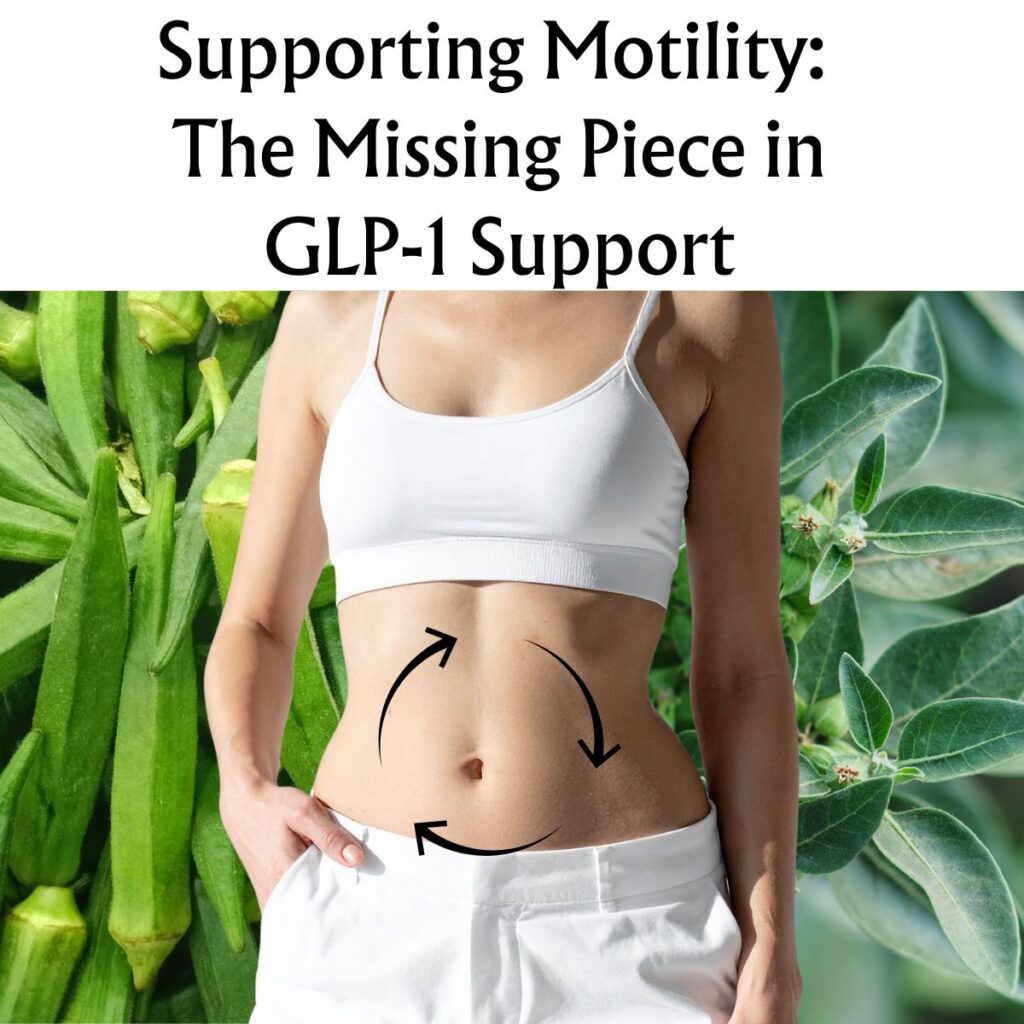As GLP-1 receptor agonists like semaglutide become increasingly common for weight management and metabolic health, an important conversation is has emerged about what supplements best support these people. But here is the reality that few are discussing:
Up to half of individuals using GLP-1 therapies experience some form of gastrointestinal slowdown…often severe enough to disrupt compliance.
➡️ While most discussions focus on blood sugar control and appetite suppression, the reality is that a sluggish digestive system can impact not just comfort, but overall wellbeing, nutrient absorption, and even mental health through the gut-brain axis.
A new clinical study involving a proprietary blend of two herbs adds meaningful insight here.
Digexin is Okra Fruit (Abelmoschus esculentus) and Winter Cherry (Withania somnifera).
The investigation evaluated Digexin in adults taking semaglutide who were experiencing GI side effects.
Over just three weeks, participants reported significant improvements in:
✅ Constipation and bloating
✅Reflux and swallowing difficulty
✅Sleep quality and perceived stress
✅Overall digestive comfort and quality of life
No adverse events were reported, and the ingredient’s bidirectional action (soothing the gut while balancing the stress response) points to a powerful principle: supporting motility isn’t just about moving things along physically; it’s about restoring rhythm to the gut-brain conversation.
As patients and practitioners alike look for ways to make GLP-1 use more sustainable, it’s exciting to see rigorously validated nutraceutical approaches emerging to fill this gap…not by mimicking its action, but by complementing it from a physiological and botanical perspective.
For those of us in the natural products and functional health space, this is an important reminder: Digestive support isn’t secondary, it’s foundational for whole-body outcomes.
For more information, message NXT-USA , or visit Booth #7501 at Supplyside Global

